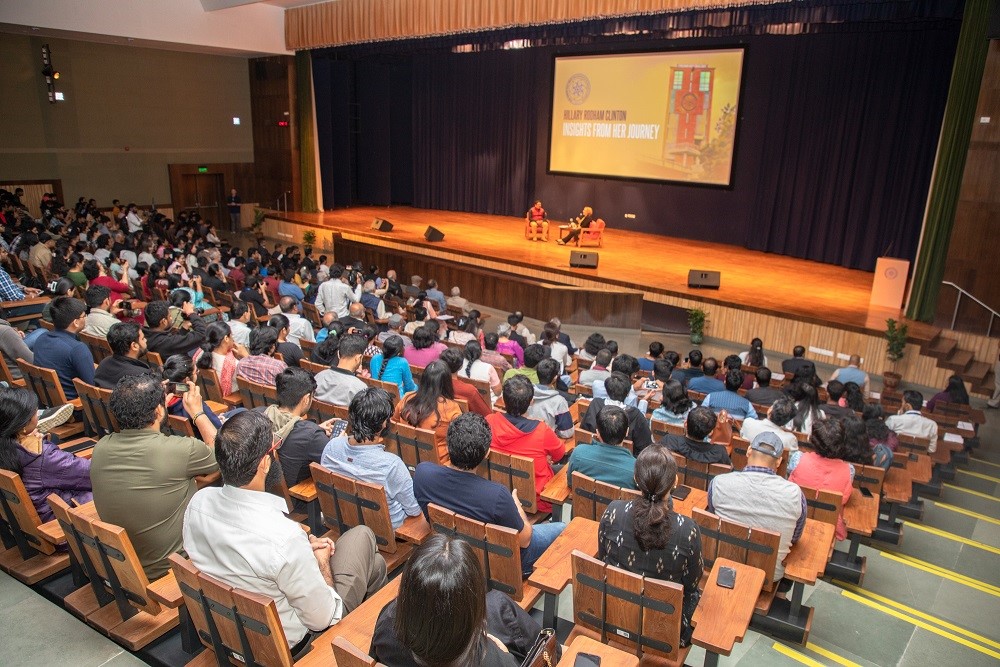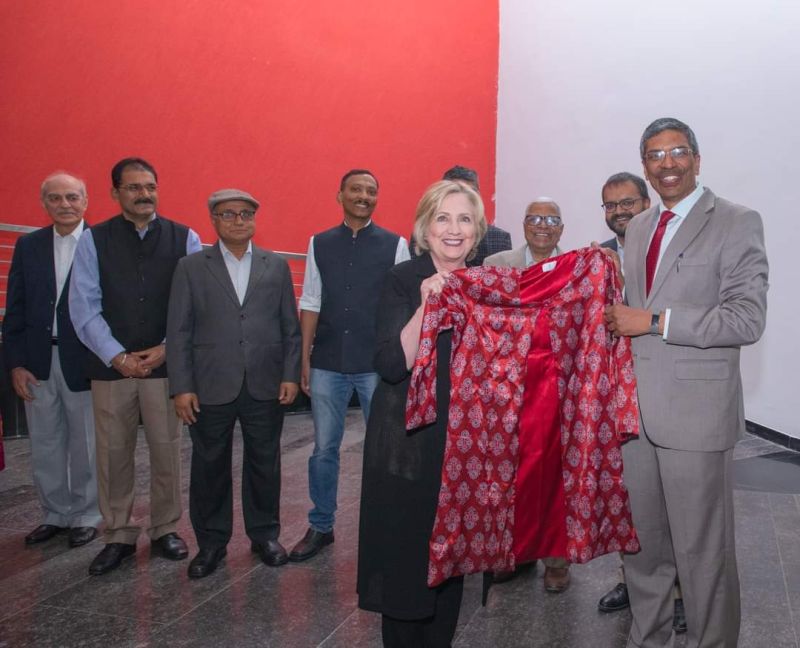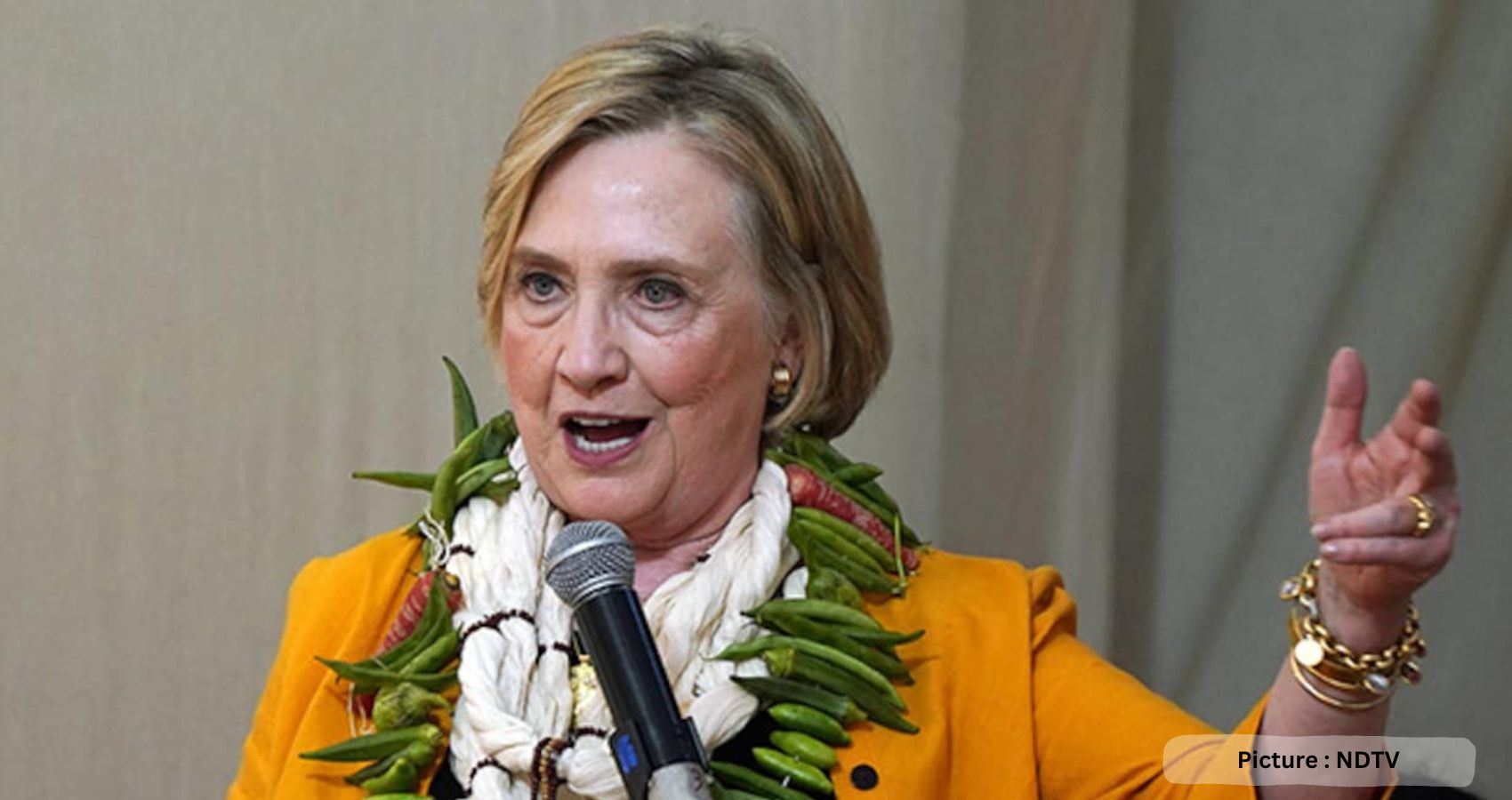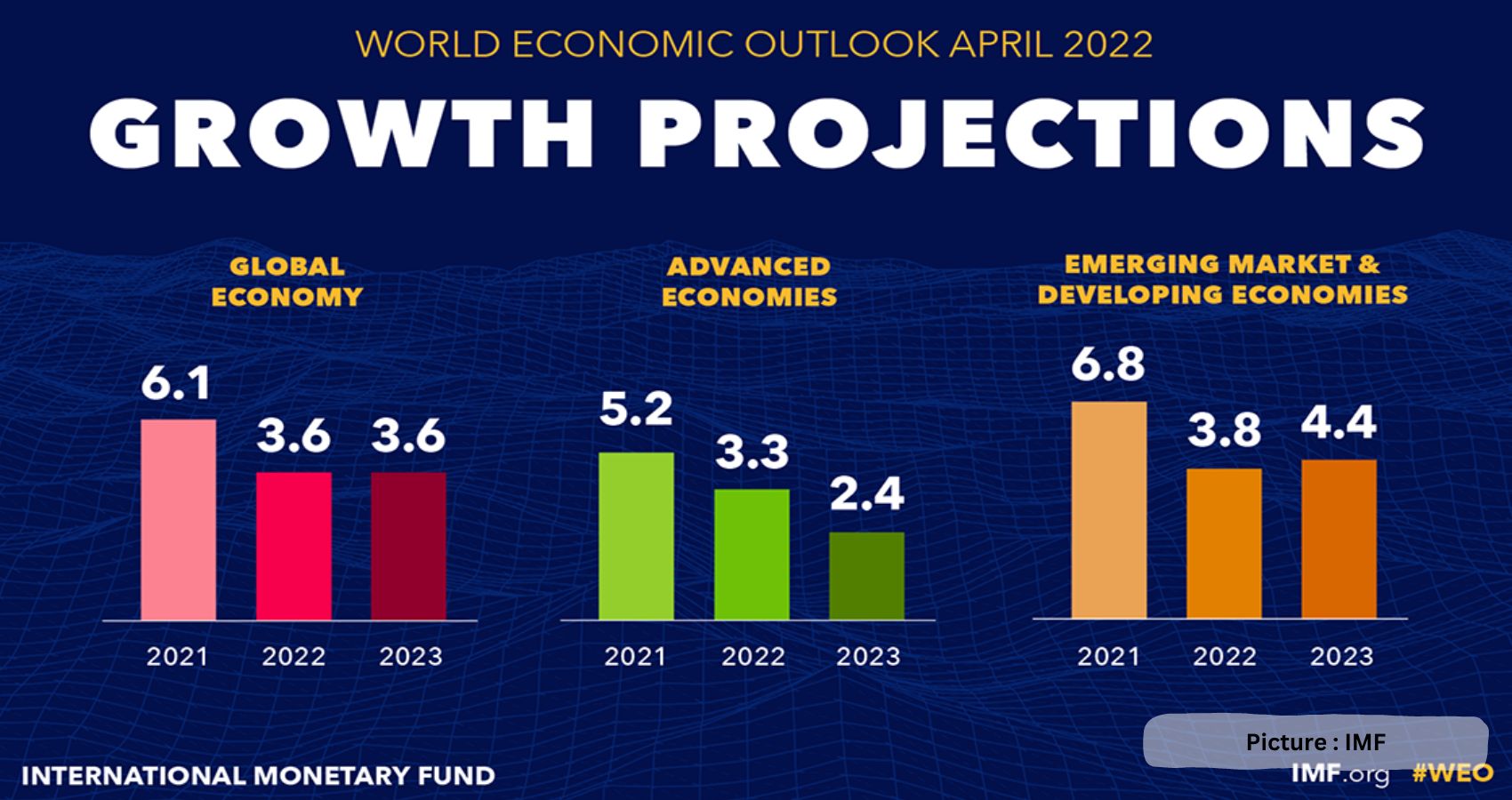Known globally for her humanitarian outlook and advocacy for social justice and women’s rights, former First Lady and Secretary of State of the United States of (US) and philanthropist Hillary Rodham Clinton visited the Indian Institute of Technology Gandhinagar (IITGN) as a part of her India visit and interacted with faculty, students, and the larger IITGN community. She was joined by senior officials of the Clinton Global Initiative (CGI).
During a town hall at the Institute titled “Insights from Her Journey”, Secretary Hillary Rodham Clinton emphasised the need to take climate action and adopt sustainable alternate solutions in our day-to-day lives.

Citing an example from her visit to a salt pan farm, where women are using solar-powered pumps, she expressed confidence in India’s ability to meet the alternate energy needs and said, “Alternative clean energy is India’s future, and it would not burden the country, but instead, it can reduce costs and generate more income for the communities. Today India is well-positioned to adopt clean energy to achieve economic growth. But it requires organisation from the public sector, the private sector, and civil society. So, with creative thinking, scientific know-how through institutions like IITGN, bringing down the costs of such alternatives, and decentralising, I really believe that the opportunity for India in being a leader in clean energy is so dramatically available.”
Hillary Clinton during the town hall at IIT Gandhinagar
The former first woman Senator from New York state also underscored the importance of higher education to prepare young people for tomorrow and said, “Education at all levels is the key to the continuing effort for economic and social equality and justice. And higher education is very important to prepare our young generation for future endeavours. It is at the heart of how we continue to provide opportunity, and so it is important to open higher education to as many students as possible with a variety of educational institutions.”

She also encouraged girls and women to develop enough resilience and support each other in dealing with adversity, “Dealing with adversity is a challenge regardless of gender, but as women, we must develop enough resilience and confidence to go through the adversity. It requires constant preparation all through your life. And it cannot happen overnight; it can be built through childhood and young adulthood. So it is important that parents express confidence in their children and provide an impartial upbringing. My parents had given equal opportunity to me and my two brothers and expected us to stand up for ourselves and be responsible. So from a very young age, I was given an opportunity to pursue my interest and develop my own path in life. Women in professional and public life realise that sexism and misogyny are still around, and sadly it has become quite redolent on social media, which has become a new challenge that we have not confronted before. So, it is important that other women support women who are adversely affected.”
Answering a question from one of the students about key lessons and takeaways from the Covid-19 pandemic, Secretary Clinton said, “There are several lessons, but most importantly, 1) We need to have supply chains in our countries and immediate regions so that we are not dependent and are able to provide what we need; 2) We have to do a much better job in communicating public health messages. There is a lot of uncertainty, which is
understandable at the start of such a Global pandemic, but we didn’t really communicate effectively with large portions of our population. India and the United States did a great and quick job in bringing vaccines to the market compared to other countries.
But we have to have global responses to curb it, and every country, especially China, has to be more open and transparent in sharing accurate information in real-time. They cannot continue to guard information the rest of the world needs to know; 3) We need to be smarter about getting enough access to healthcare that people might need if it happens again. Public health infrastructure should not collapse when an emergency hits. The whole world should come together and try to cooperate about how we are going to prepare for whatever comes next.”
Sharing her thoughts on the importance of self-reflection and introspection while being in leadership roles, Secretary Clinton said, “We are living in such a fast-paced world and being overstimulated by information as well as misinformation. So I think it’s especially important to shut off social media and your phone in order to have that time for self-reflection. Do an activity like arts, exercise or just a walk in nature without any other digital distractions, which helps you relax and distress.”
Secretary Clinton also shared a few anecdotes from her college life and motivation to keep going in her professional career in public service. Welcoming the distinguished guest, Prof Rajat Moona, Director, IITGN, said, “It is a matter of great honour to host Secretary Hillary Clinton at IIT Gandhinagar today, who has done immense work for various communities around the world. It is this philosophy of improving lives and giving back that has guided the endeavors of IIT Gandhinagar over the years. We believe in adopting a global outlook in our academic and research activities and applying it to address some global as well as regional challenges. Our effort has been to equip our students not only with cutting-edge scientific and technological knowledge but also social empathy.”
Earlier to her interactive town hall, which was moderated by Prof Bhaskar Datta, Secretary Hillary Clinton also visited Palaj village and appreciated significant efforts of the Desai Foundation (one of the Commitment Makers being recognized by Clinton Global Initiative) and their initiatives along with their partnership with IITGN’s social outreach programmes, NEEV and NYASA, in impacting rural youth, women, and communities through skilling,
entrepreneurship, and health programs.
Through the grassroots-level training projects, mentoring, and networking opportunities provided by NEEV, youth and women from these areas have been able to earn a sustainable livelihood and support their families. Through health camps organized by NYASA and its team of student volunteers, hundreds of residents of nearby villages are provided free medical check-ups by expert physicians, orthopaedics, gynaecologists, dermatologists, ophthalmologists and dentists. The beneficiaries are also provided free medicines, spectacles, and essential information related to health and nutrition.
Prof Harish P M, Dean of General Administration, who also coordinated the entire event at IITGN, said, “Our students and community members were eagerly looking forward to hearing from Secretary Clinton, and we were all delighted that she could take time out of her hectic visit to speak to the students. Both her journey and her words were a source of great inspiration for many of our students. Her words of appreciation for our social outreach programme NEEV and student initiative NYASA along with our partnership with Desai Foundation have given us a great impetus to continue creating a more inclusive environment.”
As a gesture of gratitude for spending time with IITGN students, Secretary Clinton was honored with thoughtful gifts as a memory from IITGN, including “Meghadutam – The Cloud Message”, a book having an English translation of the famous lyrical poem by classical Sanskrit poet and dramatist Kalidasa, by Prof Srinivas Reddy, a Guest Professor at IITGN, and an indo-western jacket made using exquisite Mashru silk with traditional Ajrakh print, specially designed and crafted for the guest by artisans of NEEV-IITGN.
Secretary Clinton was in India to help advance Clinton Global Initiative – CGI’s Commitments to Action that are providing employment opportunities and critical health care services to girls and women, while also providing critical support for climate resilience in the region. These Commitments were made by members of the CGI community at the CGI 2022 Meeting, which resulted in 144 new Commitments to Action addressing climate resilience, global health equity, inclusive economic growth, the global refugee crisis, and other critical global challenges.
The Desai Foundation, an IIT Gandhinagar partner in their work to engage students + teachers in social work in the nearby areas, welcomed Secretary Clinton to Palaj village. Here she saw three of their flagship programmes – Heroes for Humanity, a programme born from the COVID pandemic that employs 500 local village residents and provides them with training to deliver local programming. This programme was a part of CGI’s Commitments to Action at the CGI 2022 Meeting. The second is their flagship Asani Sanitary Napkin and Menstrual Equity Programme. And lastly, the Desai Foundation Health Camp, in collaboration with the IITGNNYASA students, a programme that brings healthcare to rural communities.



